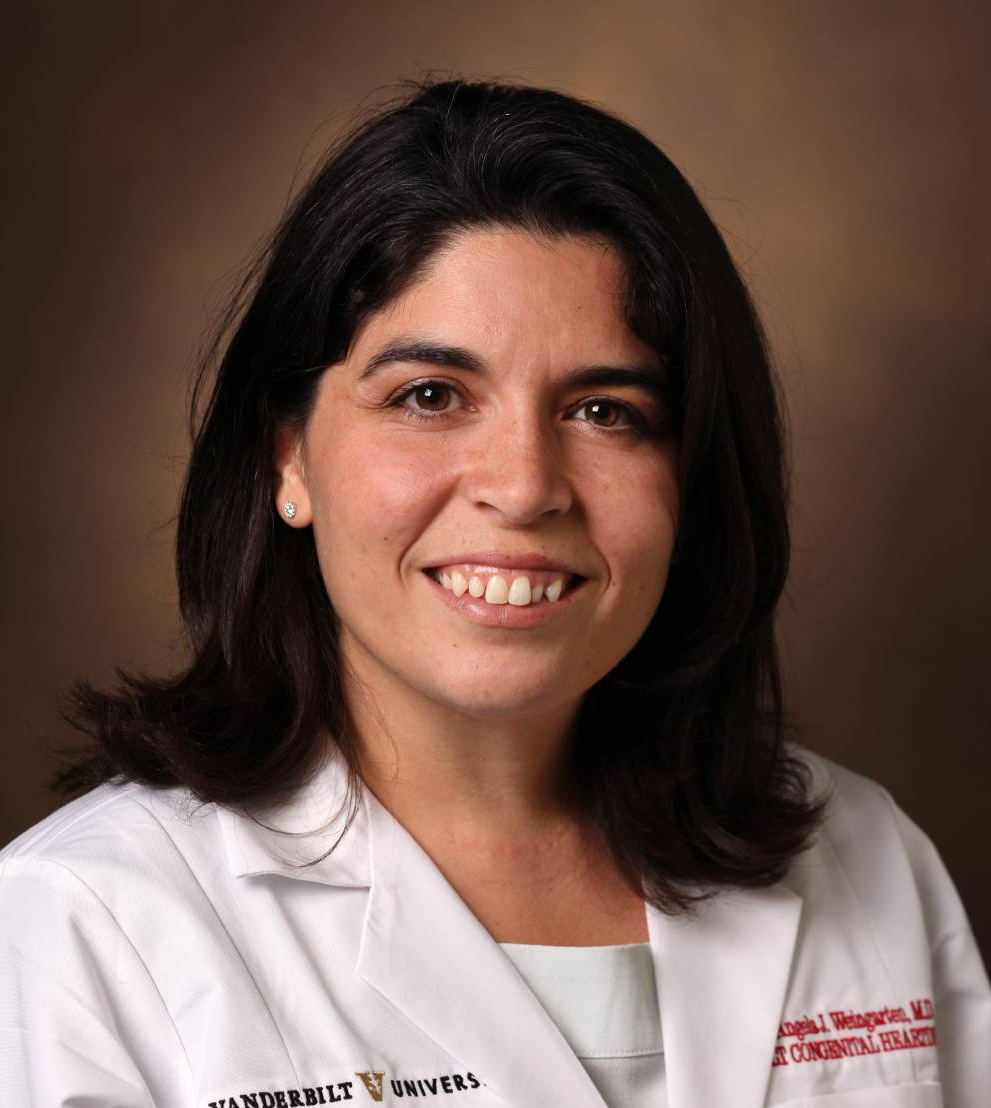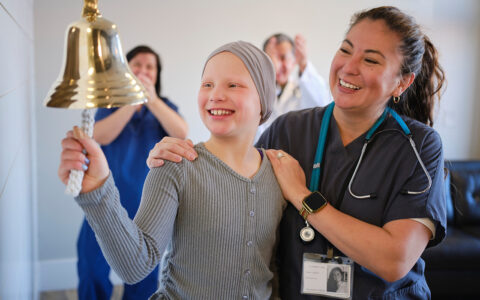Patients with congenital heart disease are living long, full lives, thanks to surgical advances and improved management strategies. Mortality rates for transposition of the great arteries, for example, fell 71 percent between 1979 and 2005. Now, most congenital heart disease patients survive well into adulthood—and many are starting families.
“Given advances in diagnosis, surgical management, and follow up, more children born with congenital heart disease are reaching childbearing age,” said Jennifer Thompson, M.D., assistant professor of obstetrics and gynecology at Vanderbilt University Medical Center. “This patient group is growing and we need services to support them.”
Pregnancy skyrockets risk of cardiac complications (heart failure, heart attack, stroke, arrhythmia, and death) in women with congenital heart disease. Thompson is one of a group of providers who run the Maternal Cardiology Clinic at Vanderbilt, a collaboration between Maternal Fetal Medicine and the Adult Congenital Heart Disease (ACHD) program. The specialty clinic, established in 2010, now provides care for over 70 women with congenital heart disease annually, guiding them through each stage of their pregnancy.
Evaluating Patient Risk
Thompson’s research shows mortality rates jump from 0.7 to 17.8 per 10,000 deliveries for women with congenital heart disease. The clinic provides an opportunity to assess an individual woman’s risk of complications, provide prenatal counseling and develop a delivery plan.
“Using risk stratification models, we can help predict a patient’s risk of a cardiovascular event in pregnancy.”
Not all women may understand their condition and the impact pregnancy will have on it, Thompson says. “Part of the evaluation includes identifying residual lesions and determining baseline function. We can then extrapolate what we know about anticipated hemodynamic changes in pregnancy to these lesions. Using risk stratification models, we can help predict a patient’s risk of a cardiovascular event in pregnancy.”
Improving Patient Care
Women with congenital heart disease comprise the vast majority (71 percent) of the clinic’s patient population. The remaining patients have other cardiac conditions, including arrhythmias, cardiomyopathy or Marfan syndrome.
“Pregnancy is a part of adult congenital heart disease, but the fact that we have a clinic is unique,” said Angela Weingarten, M.D., a cardiologist at Vanderbilt who also sees patients in the clinic. “Every patient who comes in is seen by a high-risk obstetrician and a cardiologist. That not only saves patients trips, but also helps us collaborate as providers.”
Key clinic staff include Benjamin Frischhertz, M.D., director of the ACHD program, the ACHD nurse practitioner and the ACHD nurse, who was a former labor and delivery nurse. Together, the team also discusses patients during regular multidisciplinary maternal care conferences in the Division of Maternal Fetal Medicine.
A Case Study
Weingarten recalls a woman who had Noonan syndrome, a history of pulmonary valve surgery, severe mitral stenosis, and obstructive and restrictive lung disease. She also had scoliosis and Harrington rods in her back. The woman ended up delivering her baby early via C-section, and both are now healthy.
“Heart failure symptoms emerged about eight weeks into her pregnancy,” Weingarten recalled. “This was a multidisciplinary scenario. She had obstetrics, cardiology, pulmonology, anesthesiology, neonatology, and several other specialties involved. It’s an example of how we at the clinic can coordinate care to get these patients through their pregnancy safely.”
“The majority of women with cardiac disease can have successful pregnancy.”
Added Thompson, “The majority of women with cardiac disease can have successful pregnancy.”
Referrals are welcome at the Maternal Cardiology Clinic for congenital heart disease patients that are considering pregnancy, or for other patients with cardiac conditions. It is currently the only such specialty clinic in Tennessee.






